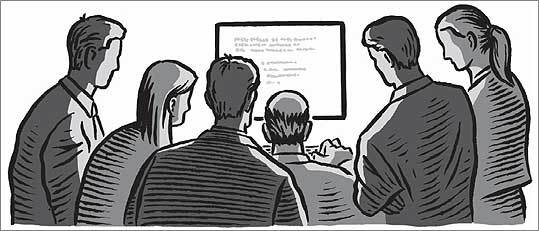The turn to online research is narrowing the range of modern scholarship, a new study suggests

A recent study, however, suggests that despite this cornucopia, the boom in online research may actually have a "narrowing" effect on scholarship. James Evans, a sociologist at the University of Chicago, analyzed a database of 34 million articles in the sciences, social sciences, and humanities, and determined that as more journal issues came online, new papers referenced a relatively smaller pool of articles, which tended to be more recent, at the expense of older and more obscure work. Overall, Evans says, published research has expanded, due to a proliferation of journals, authors, and conferences. But the paper, which appeared in July in the journal Science, concludes that the Internet's influence is to tighten consensus, posing the risk that good ideas may be ignored and lost - the opposite of the Internet's promise.
"Winners are inadvertently picked," says Evans. "It drives out diversity."
This study adds weight to concerns, shared by other Internet analysts, that the rise of online research has costs as well as benefits. Internet search tools are not neutral: they tend to privilege the new and the popular. And for all the frustrations of older research methods, their very inefficiency may have yielded rewards. Leafing through print journals or browsing the stacks can expose researchers to a context that is missing in the highly targeted searches of PubMed or PsychInfo. The old-fashioned style of browsing, some say, can provide academics with more background knowledge, and lead to serendipitous insights when they stumble upon articles or books they weren't necessarily looking for.
Yet there is vigorous debate over the Internet's effects, and the Evans research has proved controversial.
http://www.boston.com/bostonglobe/ideas/articles/2008/11/23/group_think/?page=full









No comments:
Post a Comment